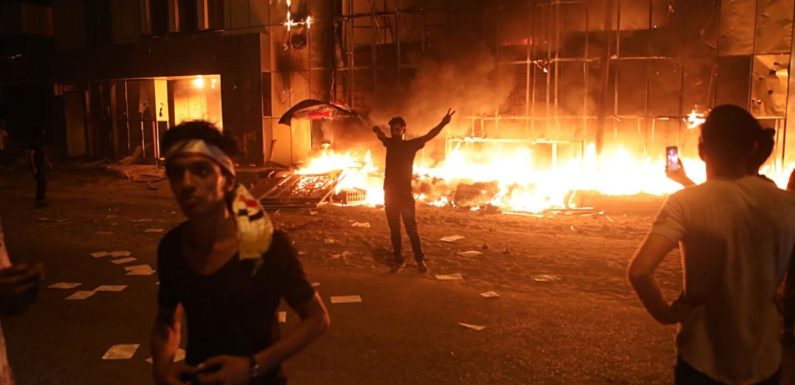
The Iranian consulate in Basra, a city in southern Iraq, have been torched by protesters amid large protests against lack of basic services and corruption.
Basra is a Shia Muslim-majority city and crowds in the street chanted against the influence Iran had on the politics in Iraq.
During the clashes with the Iraqi security forces, 11 protesters were injured, and one protester was killed.
The country’s second city, Basra saw a fifth day of violent protests on Friday and more than 10 people have been killed so far in the protests.
Curfew was announced by the officials at 09:00 P.M. local time.
Since the downfall of Saddam Hussein, the region’s main Shia power, Iran has fostered ties with the Sia majority in Iraq.
According to the analysts, the Iranian consulate that was torched by protesters is one just public building that the protesters associate with the government in Baghdad.
Bahram Qassemi, the spokesman of Iran’s foreign ministry condemned the attacks and said that it caused a considerable material damage.
Iranian media report says that before the building was torched, all the staff members of the embassy had left the building.
On Friday, the protesters burned the political offices and the local government buildings and forced the Umm Qasr to be closed. Umm Qasr is the country’s main sea port which is situated to the south of Basra.
Haider al-Abadi the Prime Minister of Iraq on Friday said that he would speed up the release of funds that is intended to improve the basic services in Basra.
Ayatollah Ali Sistani, the most senior Shia figure in Iraq blamed the unrest on the current political leaders and called for a new government that is different from its predecessors.
With lack of safe drinking water and electricity and jobs the anger in Basra has grown over with time. After drinking contaminated water, hundreds of people have been taken to the hospital.
The local residents of Basra say that the government is corrupt has allowed infrastructure to virtually collapse in the region which is responsible for generating much of Iraq’s oil wealth.

